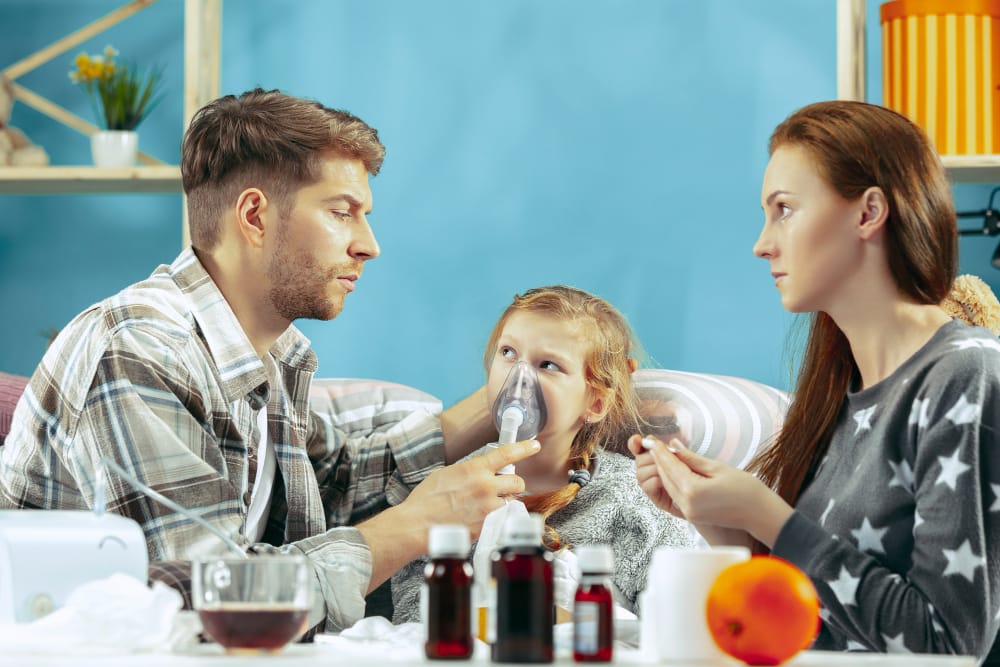Smoking and Fertility: Can Quitting Improve
Your Chances of Pregnancy?


Written By: Aman Doda
Last Updated: 21/11/2024


- How smoking affects fertility in women.
- The specific impact of smoking on women over 35.
- The benefits of quitting smoking for improved fertility and pregnancy outcomes.
- Practical tips to improve fertility after quitting smoking.
- Frequently asked questions about smoking, fertility, and pregnancy.
- 01: Introduction
- 02: How Smoking Affects Fertility in Women
- 03: Why Women Over 35 Are More Vulnerable to Smoking’s Effects on Fertility
- 04: Can Quitting Smoking Improve Fertility?
- 05: Timeline of Fertility Improvements After Quitting Smoking
- 06: Tips for Boosting Fertility After Quitting Smoking
- 07: FAQs on Smoking and Fertility
- 08: Conclusion
Introduction
For many women, especially those over 35, family planning and fertility are major concerns. Smoking is widely known to harm overall health, but its impact on fertility is particularly significant. Research shows that smoking can reduce fertility, accelerate ovarian aging, and even lead to early menopause.
If you’re considering starting or expanding your family, quitting smoking can be one of the most important steps you take toward boosting your fertility and increasing your chances of a healthy pregnancy. In this post, we’ll dive into how smoking affects fertility and why quitting is crucial for reproductive health
How Smoking Affects Fertility in Women
Smoking affects fertility in multiple ways, from damaging eggs to affecting hormonal balance. Here’s how smoking impacts a woman’s ability to conceive:
1. Egg Quality and Quantity
- Oxidative Stress: Cigarette smoke contains free radicals that cause oxidative stress, which damages the eggs in a woman’s ovaries. Since women are born with a finite number of eggs, this damage is irreversible and directly impacts fertility.
- Reduced Egg Count: Studies show that smokers have fewer viable eggs compared to non-smokers. This means there are fewer healthy eggs available for fertilization.
2. Fallopian Tube Function
- Higher Risk of Ectopic Pregnancy: Smoking can impair the function of the fallopian tubes, which transport eggs from the ovaries to the uterus. This increases the risk of ectopic pregnancies (when a fertilized egg implants outside the uterus), a potentially life-threatening condition.
- Blockages in Fallopian Tubes: Chemicals in cigarettes can cause scarring and blockages in the fallopian tubes, making it harder for eggs to travel to the uterus.
3. Hormonal Imbalance
- Estrogen Disruption: Smoking interferes with the body’s estrogen production, a hormone essential for ovulation and a healthy menstrual cycle.
- Irregular Menstrual Cycles: Due to hormonal imbalances, smokers are more likely to experience irregular menstrual cycles, which makes it difficult to predict ovulation and reduces the likelihood of conception.


Key Takeaway: Smoking damages egg quality, disrupts hormonal balance, and affects the reproductive system, all of which reduce fertility and make conception harder
You’re not alone—and you’re not broken. If you or someone you love wants to quit smoking, this free guide will help you do it the right way. Download the free ebook
Why Women Over 35 Are More Vulnerable to Smoking’s Effects on Fertility
For women over 35, fertility naturally starts to decline due to aging. Smoking compounds these age-related fertility issues, making it even harder for women in this age group to conceive. Here’s why:
1. Accelerated Ovarian Aging
- Smoking accelerates ovarian aging, causing women to experience a decline in egg quality and quantity earlier than they would otherwise. For women over 35, who already face a reduced egg count, smoking can significantly impact their fertility window.
2. Early Onset of Menopause
- Smokers are more likely to enter menopause earlier than non-smokers. Early menopause reduces a woman’s fertile years, especially affecting those who may be trying to conceive later in life.
3. Decreased Success Rates with Fertility Treatments
- Smoking decreases the success rates of fertility treatments like IVF (in vitro fertilization) by affecting egg quality and uterine health. For women over 35, who may already rely on these treatments, smoking reduces the likelihood of a successful outcome.
Key Takeaway: Women over 35 are more vulnerable to the effects of smoking on fertility due to the natural age-related decline in reproductive health.


Can Quitting Smoking Improve Fertility?
The answer is a resounding yes. Quitting smoking can significantly improve fertility and increase the chances of conception, even for women over 35. Here’s how:
1. Improved Egg Quality
- After quitting, the body’s exposure to free radicals decreases, which reduces oxidative stress. While quitting cannot restore damaged eggs, it prevents further damage, allowing healthier eggs to be available for fertilization.
2. Hormonal Balance Restoration
- Estrogen and other reproductive hormones start to stabilize after quitting smoking, leading to more regular menstrual cycles and ovulation.
3. Better Uterine Environment
- Smoking causes inflammation and reduces blood flow to the uterus. After quitting, the uterine lining improves, creating a healthier environment for embryo implantation.
4. Reduced Risk of Pregnancy Complications
- Quitting smoking reduces the risk of complications like ectopic pregnancies, miscarriage, and preterm birth, which are higher among smokers.
Key Takeaway: While individual results vary, many women experience improved fertility within a few months of quitting smoking.
Timeline of Fertility Improvements After Quitting Smoking
Many women notice improvements in their reproductive health within a few months of quitting smoking. Here’s a rough timeline:
Within 1 Month of Quitting
- Improved Circulation: Blood flow to the ovaries and uterus improves, supporting hormone balance and egg health.
- Regular Menstrual Cycles: Hormonal fluctuations start to stabilize, which may lead to more regular menstrual cycles.
3-6 Months After Quitting
- Enhanced Egg Quality: By reducing oxidative stress, healthier eggs become more available for fertilization.
- Reduced Risk of Ectopic Pregnancy: Fallopian tube function begins to improve, lowering the risk of ectopic pregnancies.
1 Year After Quitting
Increased Fertility: Women who quit smoking for a year have fertility rates comparable to non-smokers, significantly increasing their chances of conception.


Key Takeaway: While individual results vary, many women experience improved fertility within a few months of quitting smoking.
Tips for Boosting Fertility After Quitting Smoking
Quitting smoking is a powerful step toward improving fertility, but there are additional lifestyle changes that can enhance reproductive health:
1. Eat a Fertility-Boosting Diet
- Include foods rich in antioxidants (like berries and leafy greens), omega-3 fatty acids (like salmon and walnuts), and folate (found in spinach and lentils) to support reproductive health.
2. Maintain a Healthy Weight
- Being underweight or overweight can disrupt hormone balance. Aim to maintain a healthy weight to support ovulation and a regular menstrual cycle.
3. Reduce Caffeine and Alcohol Intake
- Excess caffeine and alcohol can negatively impact fertility. Try to limit caffeine to one cup per day and reduce alcohol intake as much as possible.
4. Exercise Regularly
- Moderate exercise helps balance hormones, reduce stress, and improve blood flow to the reproductive organs. However, avoid excessive exercise, as it can interfere with ovulation.
5. Manage Stress
- High stress levels can impact hormone balance and delay conception. Practice stress management techniques like yoga, meditation, or journaling.


Key Takeaway: A healthy lifestyle that includes balanced nutrition, regular exercise, and stress management can further boost fertility after quitting smoking.
FAQs on Smoking and Fertility
Many women see fertility improvements within 3-6 months after quitting. However, individual timelines vary.
Yes, smoking affects sperm quality, motility, and count, which can reduce fertility in men as well.
Yes, quitting smoking improves the success rate of fertility treatments. Discuss with your healthcare provider for personalized advice
Yes, exposure to secondhand smoke can impact hormone levels and reproductive health, so it’s best to avoid it.
Smoking during pregnancy increases the risk of miscarriage, preterm birth, low birth weight, and developmental issues for the baby
Conclusion
If you’re considering pregnancy, quitting smoking is one of the most impactful choices you can make to improve your fertility and the likelihood of a healthy pregnancy. While smoking harms egg quality, disrupts hormone levels, and affects the entire reproductive system, quitting allows your body to begin a healing process that can restore reproductive health over time.
Remember, it’s never too late to quit smoking and prioritize your health. With patience, a supportive lifestyle, and the commitment to stay smoke-free, you can increase your chances of conceiving and enjoy a healthier journey to parenthood.
Share via:
